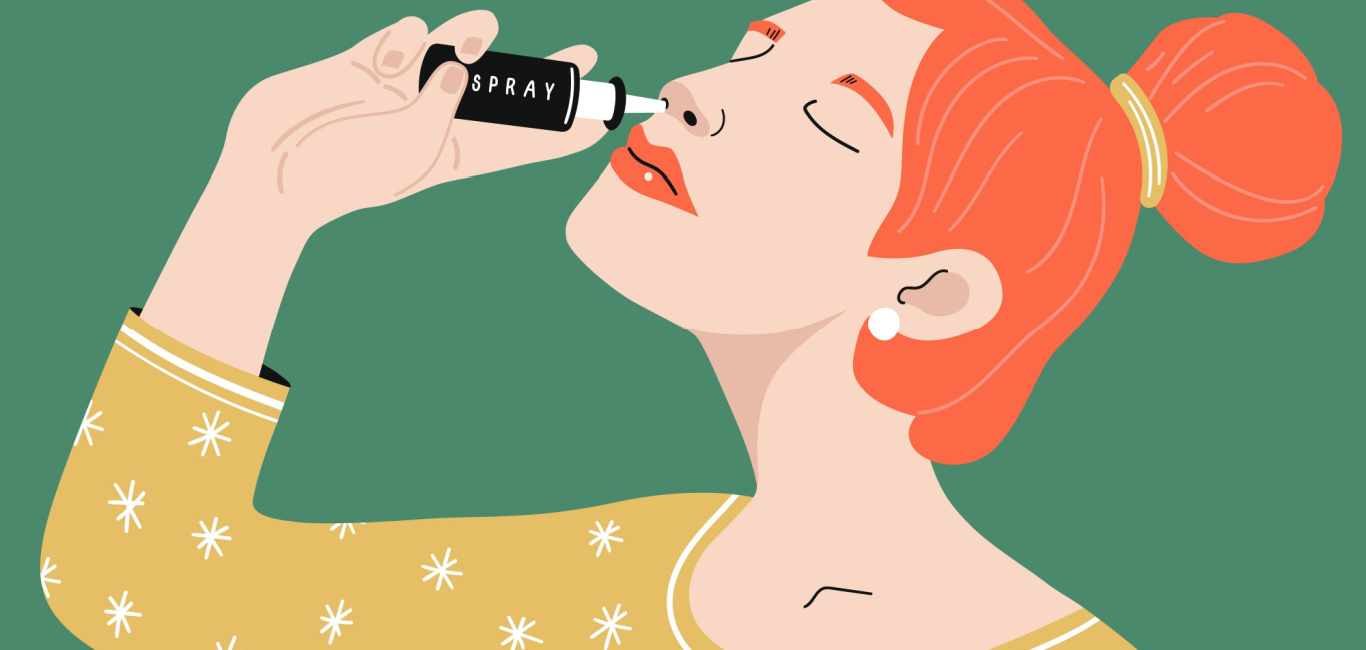
Any good thing in excess is bad. And this is true of one’s health. For instance, we are often advised to eat protein-rich food to remain healthy, but eating too much of it could later damage the kidneys.
Likewise with the medicine we take. If we take more doses than prescribed, or more frequently than what the doctor advised, the medicine could have a damaging effect rather than give us its therapeutic benefits.
A few months ago, Delhi resident Ramesh Singh Dahiya, 29, used a nasal spray bought over the counter to find relief from a mild cold with nasal congestion.
For more than a week, he used the spray 10-12 times a day as it gave him immediate relief. This was where Dahiya had erred. He had ignored reading the instruction on the product label, which said the spray should not be used beyond three days and not more than three to four times a day .
“By the fourth day of using the nasal spray, it had decongested my nasal passage, but after that it did not seem to be effective,” recalls Dahiya. “So I tried steam inhalation, nasal wash and other proven nasal home remedies, but nothing worked. Instead my congestion only worsened,” he tells Happiest Health.
The congestion had by now become so bad that he had to see a doctor. The doctor, after going through his medical and medication history, diagnosed Dahiya’s condition as rhinitis medicamentosa.
What is rhinitis medicamentosa?
The name indicates that it comes from medication – or rather, overuse of it. The stuffy nose is stubborn and obstructs sleep, eating and all else apart from breathing. As Dahiya did, many resort to using a nasal spray to get quick relief from it. However, if the dose and its frequency are exceeded, it can lead to side effects and this complication, also called rebound congestion.
Rhinitis medicamentosa takes stuffy nose to a new level that is tough to treat. “This condition develops when one overuses the nasal spray. Overuse makes the nasal congestion dependent on the decongestant nasal spray instead of providing relief,” says Dr Nikhat Parveen, an ENT (ear, nose, throat) specialist from Kolkata.
How it happens
An upper respiratory tract infection or seasonal allergy often causes nasal tissues to swell and in turn lead to nasal congestion. The swollen tissues obstruct breathing through the nostrils.
“Decongestant nasal sprays constrict the blood vessels within nasal passages rather than directly addressing the underlying inflammation,” says Dr Udyat Bhatnagar, ENT consultant from Moradabad. “The constriction provides a temporary relief by reducing the swelling and allowing for easier breathing.”
However, he adds, the relief is short-lived, and as the effects of medication diminish, the blood vessels return to their normal state, and the congestion also relapses. One may feel the need to use the nasal spray again.
The difficulty arises because the nasal passages rely on the blood supply from these vessels. They transport immune system cells to the nasal area, helping combat the virus or allergen responsible for the congestion.
With each spray of the medication, the blood vessels become less responsive to constriction, and when the effect of the medicine wears off, they overcompensate by dilating more than before.
“This sets off a destructive cycle where one finds diminishing benefits from the medication, leading to an increased usage,” says Dr Parveen. “This in turn causes your blood vessels to become less responsive to constriction and more prone to dilation, exacerbating your congestion. Eventually, you end up with swollen blood vessels that persistently fail to return to their normal state even after the virus or allergen has subsided.”
Medications which cause it
Dr Bhatnagar cautions that OTC or over-the-counter medicines are to be used only for a short term and temporary relief and one should follow the dosage and frequency mentioned in the label. The medications are only meant to be used for a short duration and one must consult a doctor at the earliest before continuing the OTC medicine.
“While using nasal sprays with active ingredients like phenylephrine and oxymetazoline, make sure you follow the dosage mentioned in the product labels,” cautions Dr Bhatnagar. “These ingredients are the main cause of rhinitis medicamentosa.”
Moreover, nasal sprays that have steroids do not cause any complications.
Side effects of nasal drops and sprays
Dr Parveen lists a few side effects that are usually associated with using decongestant nasal sprays:
- Need to take more doses over time: The nasal sprays do not seem to decongest nasal passages or often one require more doses to get relief.
- Stuffy nose worsens: Normally a nasal congestion gets better with time as the body fights the infection. However, one may feel the condition worsening or a more stubborn stuffy nose over time.
- Irritation and ache in the nose: If the inside of the nose starts aching and gets irritated after using nasal sprays.
Managing nasal congestion
Dr Nikhat Parveen says the cause of this condition is overuse of medication, so the important thing is to use less of it. She shares a few tips one should follow to avoid rhinitis medicamentosa and have a clear breathing.
- Minimal use of spray: Start low and observe if you feel better. Do not start with two or three sprays or drops.
- Timing the dose: The goal is to use as little as possible while staying comfortable. Use it before going to bed or when you need it the most.
- Gap between doses: Taking fewer doses and stretching the time between two successive doses will add to safety. If the product label says ‘relief for six to eight hours’, wait for at least that duration before taking the next dose.
- Stop after the prescribed course: If the product label mentions that the spray should not be used for more than three or five days, stop using it at that point. If there is no improvement in the symptoms, do consult a doctor for professional advice.
Difficult to treat
Dr Udyat Bhatnagar says that treating the blood vessels affected by nasal spray overuse might not be easy and it may take a while to get their functions back on track. One should stop using the spray. The doctor may prescribe a steroidal or saline-based nasal spray or drops to manage the condition.
“The recovery time depends on how frequently and often an individual has used the spray, and needs to be patient during the recovery phase,” he adds. “Usually within weeks, but in some cases it might take months to get [back to] clear breathing.”
If unattended, rhinitis medicamentosa may cause complications such as infections and nasal polyps. It is important to consult a doctor in time and not to rely on other sources to self-diagnose and self-medicate.















